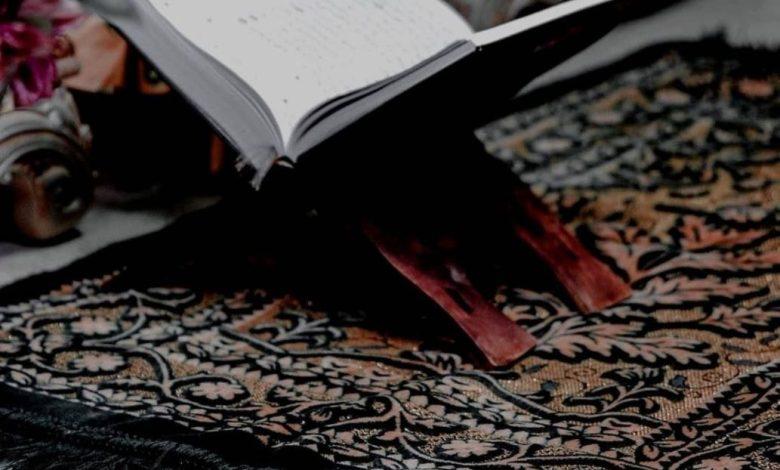Nasīhatu Ahli Az-Zamān authored by Shaykh Mujaddid `Uthmān Dan Fodio rahimahullāh 16
Halqah Series: Episode 69

🕌 SHARH SESSION
🕌”Nasīhatu Ahli Az-Zamān” (016)
We ask Allāh to make it beneficial to us all, āmīn.
We shall continue from where we stopped in the Sharh of the book Nasīhatu Ahli Az-Zamān by Shaykh Uthmān Ibn Fūdī (Dan Fodio) rahimahullāh
We stopped at his quotation of Umar Ibn ‘AbdilAzīz where he said:
وقال عمر بن عبد العزيز رحمه الله (سن رسول الله صلى الله عليه وسلم وولاة الأمر بعده سننا، الأخذ بها تصديق لكتاب الله واستعمال لطاعة الله وقوة على دين الله ليس لأحد تغييرها ولا تبديلها…
“Umar Ibn ‘Abdil’Azīz – rahimahullāh – said: the Messenger of Allāh – salallāhu alayhi wasallam – and the Leaders after him established and left behind them their traditions. To emulate those is betruthing the Book of Allāh, being in compliance with obeying Allāh, it is strength in the Dīn of Allāh. It is not permissible for anyone to change or modify it…”
The Shaykh said:
وأما التزام الورع في خاصة نفسه فاعلموا يا إخواني أن الورع استبراء للدين والعرض
“As for paying attention to Wara’a (Scrupulousness) in his private matters, then know O Brothers of mine that Wara’a is to take cautious steps that free Dīn and Reputation from blame”
وفي صحيح البخاري روى النعمان بن بشير قال: سمعت رسول الله صل الله عليه وسلم يقول: الحلال بين والحرام بين وبينهما أمور مشتبهات لا يعلمهما كثير من الناس، فمن اتقى الشبهات فقد استبرأ لدينه وعرضه
“In the Sahih of Al-Bukhāri, An-Nu’mān Ibn Bashir narrated saying: I heard the Messenger of Allāh salallāhu alayhi wasallam saying: Indeed what is Halāl is distinct, and what is Harām is distinct, and in between both are matters that are Shady and Contemplative. Majority of the People are ignorant of them. Whosoever therefore protects himself from the Contemplative Matters, has indeed freed his Dīn and his reputation from blame…”
This Hadīth quoted by the Shaykh is among the Ahādith that form the basics of Fiqh like the Ulamā have established.
As for the Narrator of the Hadīth, he is An-Nu’mān Ibn Bashīr Ibn Sa’ad – radiyallāhu ‘anhu. He was a Companion of the Rasūl – salallāhu alayhi wasallam – and a son of His Companion
His father was Abū ‘Abdillah Al-Ansārī Al-Khazrajī and a son of the sister of ‘Abdullah Ibn Rawāhah.
He was the first to be born to the Ansār after the Hijrah of the Rasūl – salallāhu alayhi wasallam – to Madīnah
Just as ‘Abdullah Ibn Az-Zubayr was the first to be born to the Muhājirūn after the Hijrah to Madīnah.
Recorded in the books of Hadīth in his credit today are 114 Ahādith – radiyallāhu ‘anhu –
We ask Allāh to reward him on behalf of the Ummah.
At the time of the Passing of the Rasūl – salallāhu alayhi wasallam – he was Eight Years and Seven Months.
The Ulamā of Hadīth use the Story of An-Nu’mān as one of the evidences to support the Correctness of a non- Adult narrating a Hadīth and it being accepted by the Ummah.
This is because all of the Ulamā of Islām agreed to this Hadīth
Not only that, they agree on the fact that it is a Pillar among the Pillars upon which the Ahkām of the Dīn are based.
Before he passed away, the Noble Companion Nu’mān Ibn Bashīr had held many leadership positions in the Ummah
He passed away 64 years after the Hijrah
Which places his age at the time of passing at 56.
May Allah be pleased with him, Āmīn.
About the Hadīth, Imām Ibn Daqīq Al-‘Īd – rahimahullāh said:
“This Hadīth is a great Reference among the References of the Sharī’ah”
Al-Jurdānī mentioned in Al-Jawāhiru Al-Lu’lu’iyyah that the Ulamā agreed on the great importance of this Hadīth because it single handedly encompasses many of the things in the Sharī’ah.
Shaykh Uthmān Dan Fodio – rahimahullāh – said:
قال أبو محمد عبد الجليل في شعب الإيمان: اختلف العلماء في تحديد الشبهة فقال طائفة: الشبهة ما غاب عن عين أصله فلم يعرف حرام هو أم حلال
“Abu Muhammad ‘Abdul Jalīl mentioned in Shu’ub Al-Īmān the following:
The Ulamā have differed on defining the word ‘Shub’hah. So some of them said: Shub’hah is that the perception of whose reality is hidden from people and its ruling cannot be fathomed by them whether it is Harām or Halāl
وقالت طائفة: ما اختُلف فيه، فقال قوم: حلال وقال قوم: حرام
“And Others said: it is that about which there is difference. Some said it is Halāl and some said it is Harām
وقالت طائفة: الشبهة لا تكون في الأموال، فإن المال لا يعرف إلا حلالا أو حراما ، وقالت طائفة: الشبهة أكثرها حلال
“And Others said: Shub’hah cannot be found in Money. This is because money is distinct in ruling to be either Halāl or Harām. And another band said: Most of Shub’hah are Halāl
والحقيقة في تحديدها إن شاء الله: أن ما لم يتبين فلم يقطع عليه يقينا أحلال هو أم حرام فهو شبهة لقول النبي صلى الله عليه وسلم: (الحلال بين والحرام بين وبينهما أمور مشتبهات) فقد قامت الشبهة وجودا ثالثا بين الحلا والحرام. انتهى
“And the reality of its definition, Allāh willing, is that ‘Whatever is not clear of ruling in such a way that it isn’t clear cut by certainty to be Halāl or Harām, is a Shub’hah. This is due to the Statement of the Prophet – salallāhu alayhi wasallam : ‘Halāl is Clear and Harām is Clear, and between them are matters that are Shubuhāt’. By so doing, Shub’hah became a third distinct matter aside Halāl and Harām.” End Quote.
We ask Allāh to grant us further understanding of the Dīn and to make us of His Pious Servants, āmīn
We shall pause here
Bārakallāhu fīkum
Jazākumullāhu Khayran.
Assalāmu ‘Alaykum Warahmatullāh Wabarakātuh.
16th Muharram 1439
(07/10/2017)
📚 IslamNode
🌿🌿🌿🌿🌿🌿🌿🌿🌿




